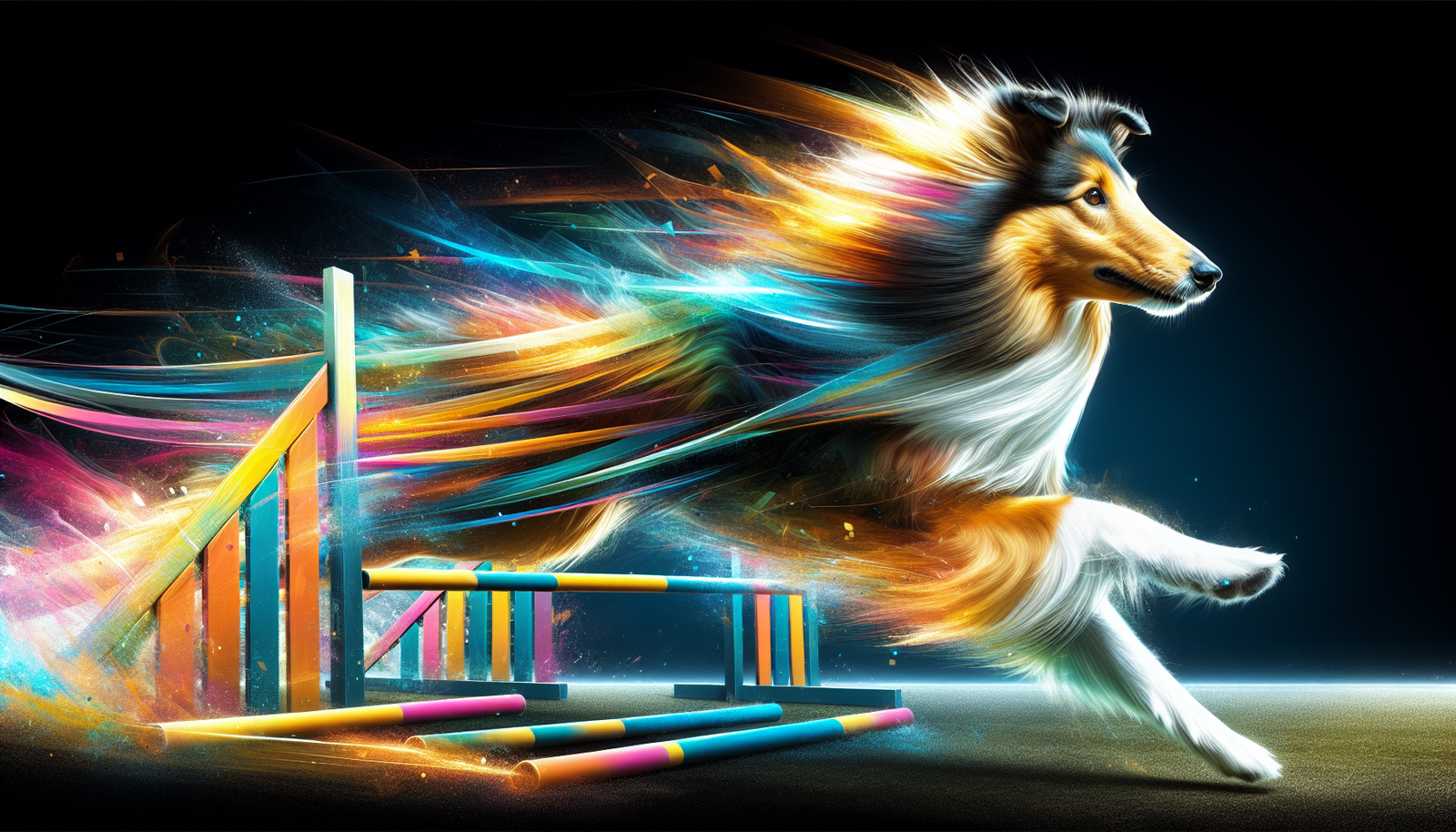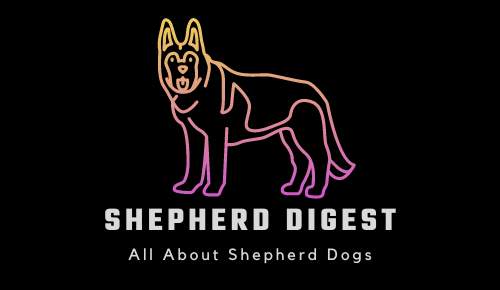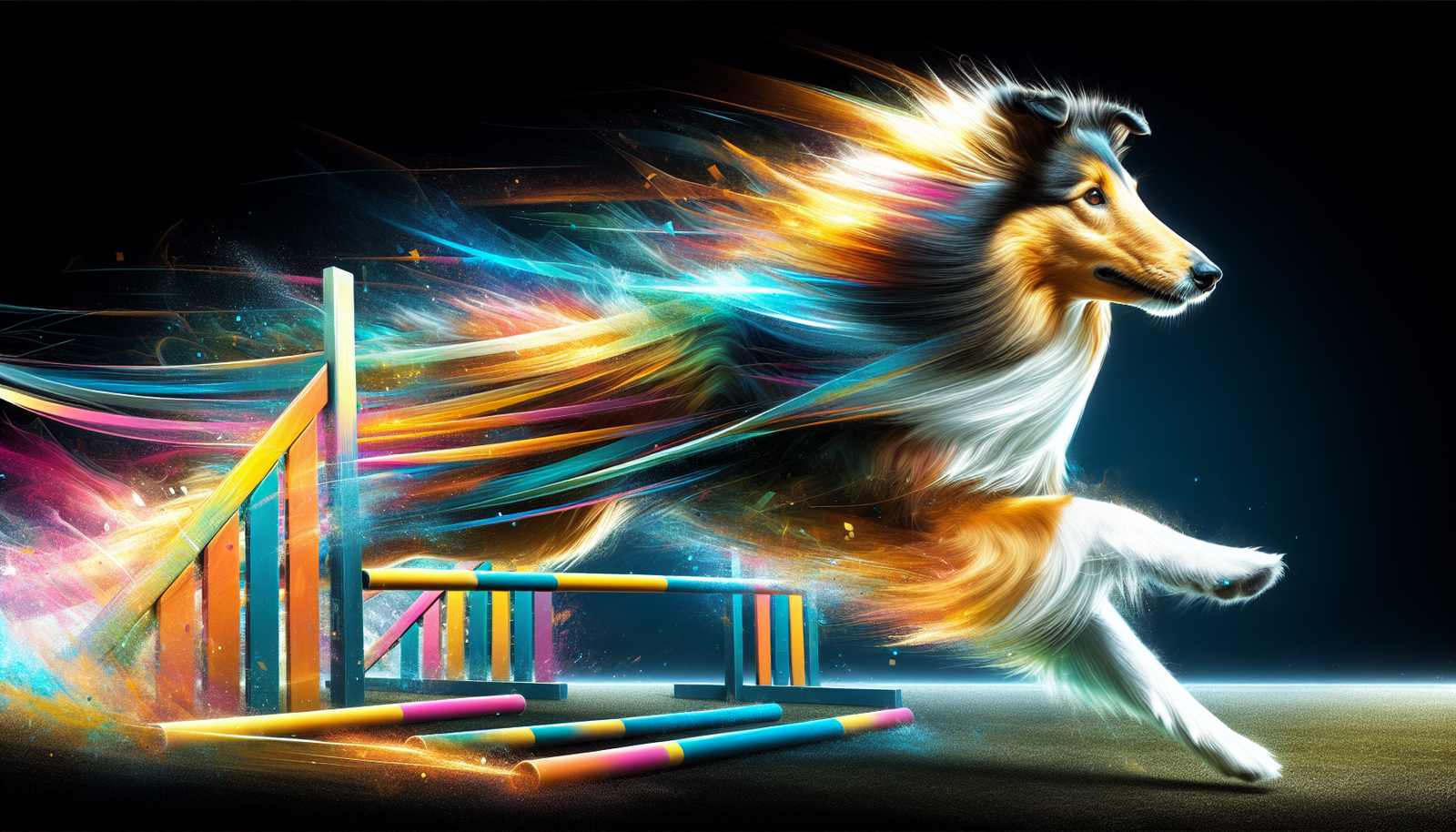If you’re a proud owner of a Rough Collie and have been considering taking their agility training to the next level, you may be wondering how to determine if your furry friend is prepared. Luckily, there are several key signs to look out for that can indicate your Rough Collie is ready for advanced agility training. From their enthusiasm during casual games of fetch to their ability to navigate through basic obstacles effortlessly, these subtle but telling behaviors can help you gauge their readiness for the challenges that lie ahead. So, keep an eye out for these signs and get ready to embark on an exciting agility training journey with your Rough Collie!
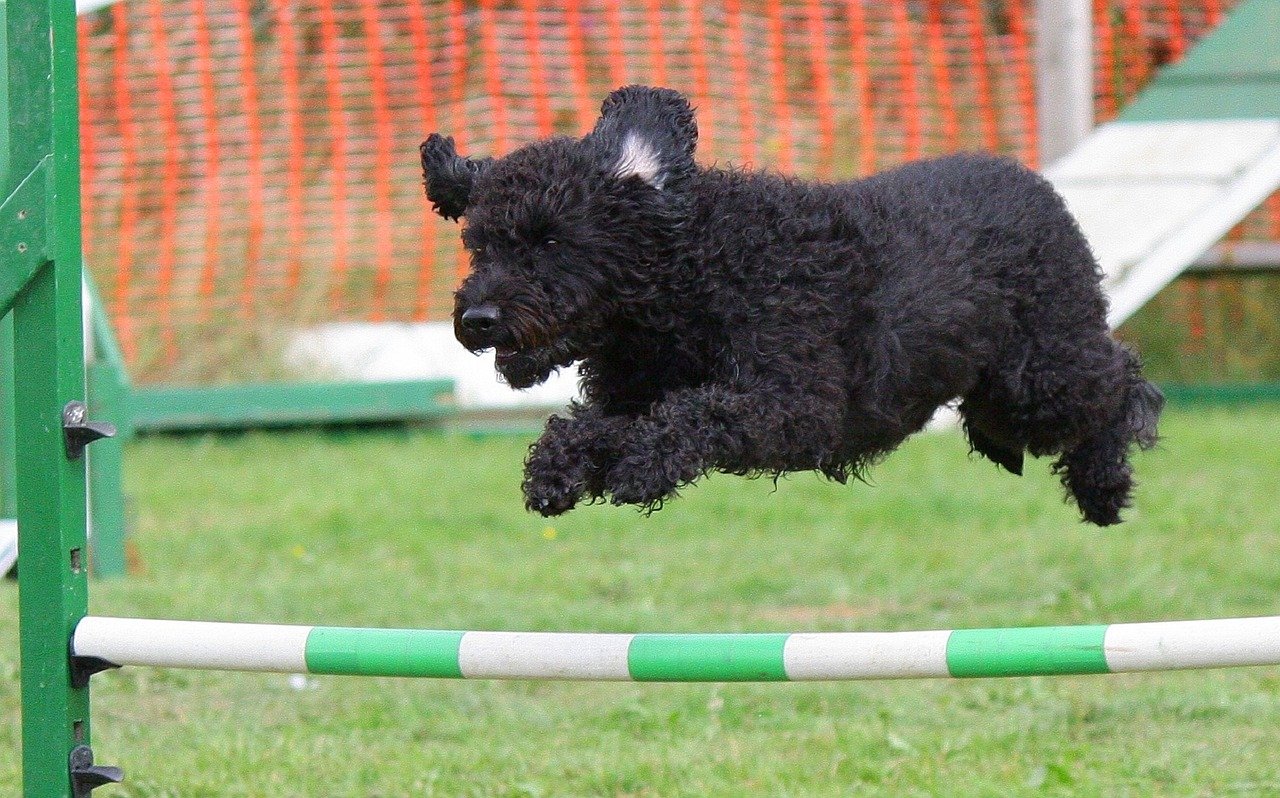
This image is property of pixabay.com.
Physical readiness
Age
Before starting advanced agility training, it is important to consider your Rough Collie’s age. While puppies may possess energy and enthusiasm, their growing bodies are not yet fully developed and may be susceptible to injury. It is generally recommended to wait until your Rough Collie is at least one year old before beginning advanced agility training.
Health
The physical health of your Rough Collie is another crucial aspect to consider. Ensure that your furry companion is up-to-date with vaccinations and regular veterinarian check-ups. A clean bill of health is essential before engaging in any strenuous physical activities, such as advanced agility training. Your Rough Collie should have no underlying medical conditions that may impede their ability to participate safely and comfortably.
Fitness level
To excel in advanced agility training, your Rough Collie should have a basic level of fitness. Engage your furry friend in regular exercise routines that target cardiovascular endurance, muscle strength, and flexibility. Physical activities like brisk walks, jogging, or off-leash play sessions can help build your Rough Collie’s fitness level, making them better prepared for the demands of advanced agility training.
Mental readiness
Focus and attention
A crucial aspect of advanced agility training is your Rough Collie’s ability to focus and pay attention to commands. Training sessions require mental concentration and the willingness to follow instructions. If your Rough Collie exhibits a consistent ability to maintain focus and attentiveness during basic obedience training, it is a positive sign that they may be mentally ready for the challenges of advanced agility training.
Problem-solving skills
Advanced agility courses often introduce complex obstacles and require quick decision-making from your Rough Collie. Evaluating your furry companion’s problem-solving skills can provide insight into their ability to navigate challenging scenarios. Engage your Rough Collie in puzzle toys or interactive games that encourage them to think and find solutions independently. If they demonstrate an aptitude for problem-solving, it may indicate their readiness for advanced agility training.
Trainability
The willingness of your Rough Collie to learn and respond to training is an important factor in their mental readiness for advanced agility training. A trainable dog eagerly follows instructions, quickly grasps new concepts, and retains information from previous training sessions. If your Rough Collie consistently exhibits these traits and shows enthusiasm for learning, it suggests they have the necessary mental readiness for advanced agility training.
Basic obedience
Response to commands
Before embarking on advanced agility training, it is crucial that your Rough Collie displays consistent and reliable responses to basic obedience commands. These commands include sit, stay, come, and lie down. Your furry companion should promptly and accurately respond to these commands, indicating their understanding and respect for your authority. A strong foundation in basic obedience ensures better control and safety during advanced agility training.
Controlled behavior
Advanced agility training requires your Rough Collie to maintain controlled behavior, both on and off the agility course. This includes walking calmly on a leash, staying focused amidst distractions, and refraining from excessive jumping or barking. If your Rough Collie consistently demonstrates controlled behavior during everyday activities and training sessions, they are more likely to excel in advanced agility training.
Reliability
Reliability in commands is crucial for success in advanced agility training. Your Rough Collie should consistently follow your instructions, regardless of the distraction or environment. If they reliably respond to commands even in challenging situations, it indicates their readiness for the added complexities of advanced agility training. Reliability is a key attribute that ensures your Rough Collie’s safety and the smooth execution of advanced agility courses.
Foundation agility skills
Start line stay
The start line stay is a foundational skill in agility training. It requires your Rough Collie to remain in a designated position until given the signal to start the agility course. If your furry friend shows a strong ability to stay in place until released, it indicates their readiness for advanced agility training. A solid start line stay sets the tone for focused and controlled performance throughout the course.
Contact obstacles
Contact obstacles, such as A-frames and dogwalks, require your Rough Collie to walk or run up and down ramps with specified contact zones. The ability to confidently navigate contact obstacles indicates your dog’s physical coordination and understanding of the equipment. If your Rough Collie demonstrates proficiency in contact obstacles during basic agility training, they are ready to advance to more complex courses.
Tunnel performance
Tunnel performance is another foundational skill that showcases your Rough Collie’s aptitude for agility training. Your dog should enter the tunnel confidently, move swiftly through its length, and eagerly exit at the other end. If your Rough Collie exhibits these traits and shows an understanding of commands related to tunnel performance, they are ready to progress to more challenging aspects of advanced agility training.
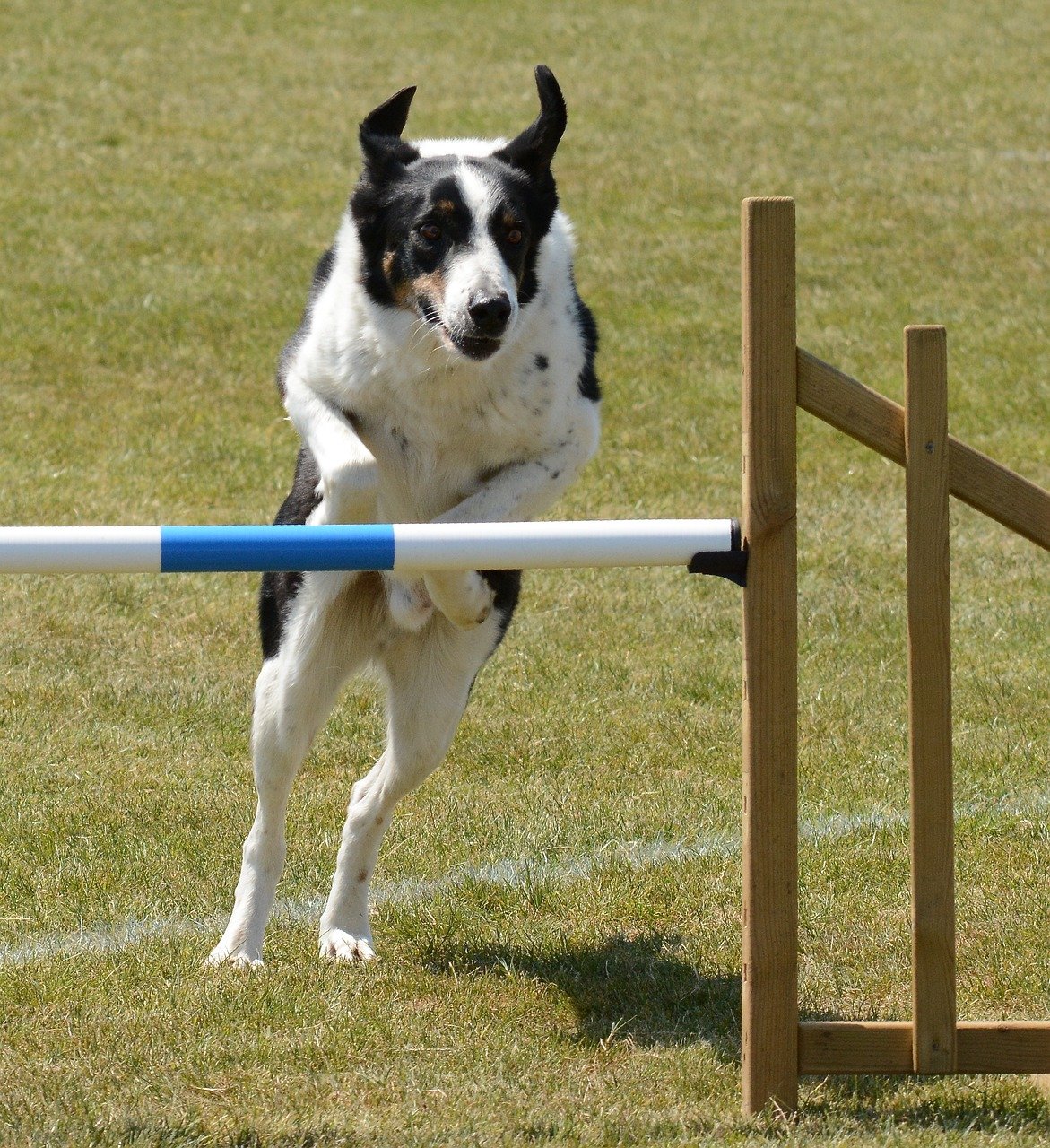
This image is property of pixabay.com.
Ability to follow cues
Verbal cues
Clear and precise verbal cues are crucial for effective communication between you and your Rough Collie during agility training. Your furry companion should display a strong understanding of verbal commands, responding promptly and accurately to each cue. If your Rough Collie consistently follows verbal cues during basic obedience and agility training, it is an encouraging sign of their readiness to advance to more complex verbal instructions.
Visual cues
In addition to verbal cues, visual cues play a vital role in agility training. Your Rough Collie should be able to interpret and respond to hand signals, body movements, and other visual cues effectively. Clear and consistent visual cues aid in guiding your furry companion through the agility course and ensuring precise performance. If your Rough Collie shows an aptitude for understanding and following visual cues, they are prepared for the challenges of advanced agility training.
Body language
Your body language, as the handler, can greatly influence your Rough Collie’s performance in agility training. Dogs are highly attuned to human cues through body language and facial expressions. Your furry companion should display an understanding of your body language during training sessions, responding appropriately to your cues. If your Rough Collie demonstrates an ability to read and respond to your body language, it indicates their readiness for advanced agility training.
Drive and motivation
Enthusiasm for training
One of the significant indicators of your Rough Collie’s readiness for advanced agility training is their enthusiasm for training sessions. Your furry companion should display a genuine joy and eagerness to participate in agility exercises. If they consistently show a high level of enthusiasm and excitement for training, it is a positive sign of their motivation and drive to excel in advanced agility courses.
Desire to work
Rough Collies that possess a strong desire to work and please their handlers are often well-suited for advanced agility training. Your furry friend should display a natural inclination to engage in mentally and physically challenging activities with dedication and enthusiasm. If your Rough Collie consistently shows a desire to work and actively seeks opportunities for training and play, they are ready for the demands of advanced agility training.
Response to rewards
Reward systems, such as treats or praise, are commonly used in agility training to reinforce desired behaviors. Your Rough Collie’s response to rewards is an essential factor to consider when assessing their readiness for advanced agility training. If they exhibit a strong positive response to rewards, eagerly anticipating and engaging in training sessions with enthusiasm, it suggests their motivation and drive to perform well in advanced agility courses.
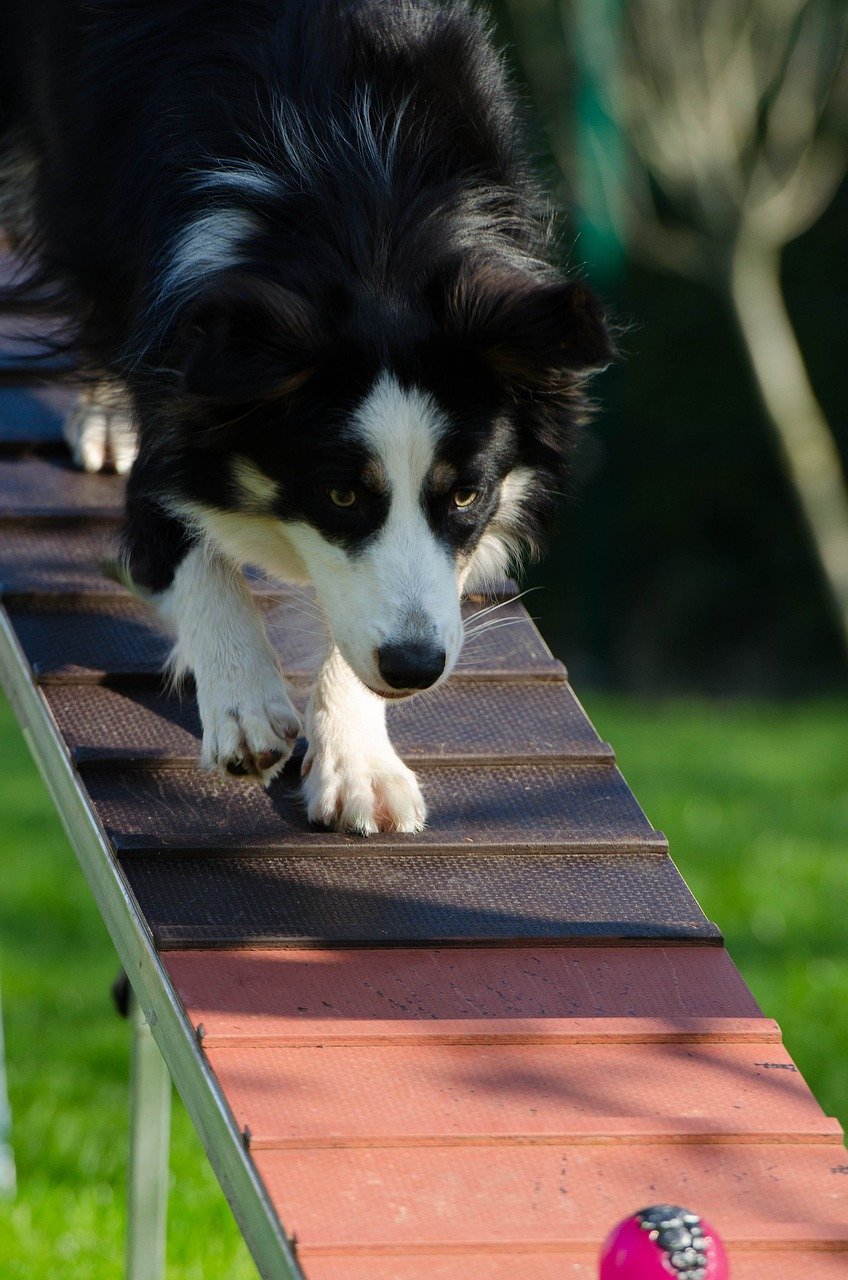
This image is property of pixabay.com.
Physical coordination
Body awareness
Body awareness refers to your Rough Collie’s understanding of their physical movements and the ability to control their body during various agility maneuvers. A dog with good body awareness can accurately gauge and adjust their stride, balance, and foot positioning. If your Rough Collie demonstrates a high level of body awareness, it indicates their physical coordination and preparedness for the challenges of advanced agility training.
Balancing skills
Advanced agility training often involves obstacles that require precise balance and coordination from your Rough Collie. Your furry companion should display the ability to maintain stability and control while navigating these obstacles, such as narrow planks or balance beams. If your Rough Collie consistently demonstrates well-developed balancing skills, it suggests their readiness for advanced agility training.
Jumping technique
Jumping is a fundamental aspect of agility training, and your Rough Collie’s jumping technique plays a crucial role in their success on the course. Dogs with proper jumping technique display efficient use of their hind legs, maintain a smooth and controlled stride, and accurately gauge distances. If your Rough Collie exhibits a well-developed jumping technique during basic agility training, it indicates their physical coordination and readiness for advanced agility courses.
Endurance and stamina
Sustained activity
Advanced agility courses often require your Rough Collie to engage in sustained activity that demands physical endurance. Your furry companion should showcase the ability to maintain their energy levels throughout the entire course, with minimal signs of fatigue or slowing down. If your Rough Collie consistently demonstrates sustained activity during exercise sessions or basic agility training, they are better prepared for the endurance requirements of advanced agility training.
Recovery time
Recovery time refers to how quickly your Rough Collie can return to their optimal physical condition after engaging in strenuous activities. Dogs with good endurance and stamina typically have shorter recovery times, indicating their ability to replenish energy stores efficiently. If your Rough Collie exhibits relatively quick recovery times between exercise sessions and agility training, it suggests their readiness for the physical demands of advanced agility courses.
Cardiovascular fitness
Cardiovascular fitness is a key component of your Rough Collie’s physical readiness for advanced agility training. A healthy heart and lungs enable your furry companion to effectively transport oxygen to their muscles during exercises, minimizing fatigue and increasing endurance. If your Rough Collie shows good cardiovascular fitness, as evidenced by their ability to engage in lengthy activities without excessive panting or slowing down, they are prepared for the aerobic challenges of advanced agility training.
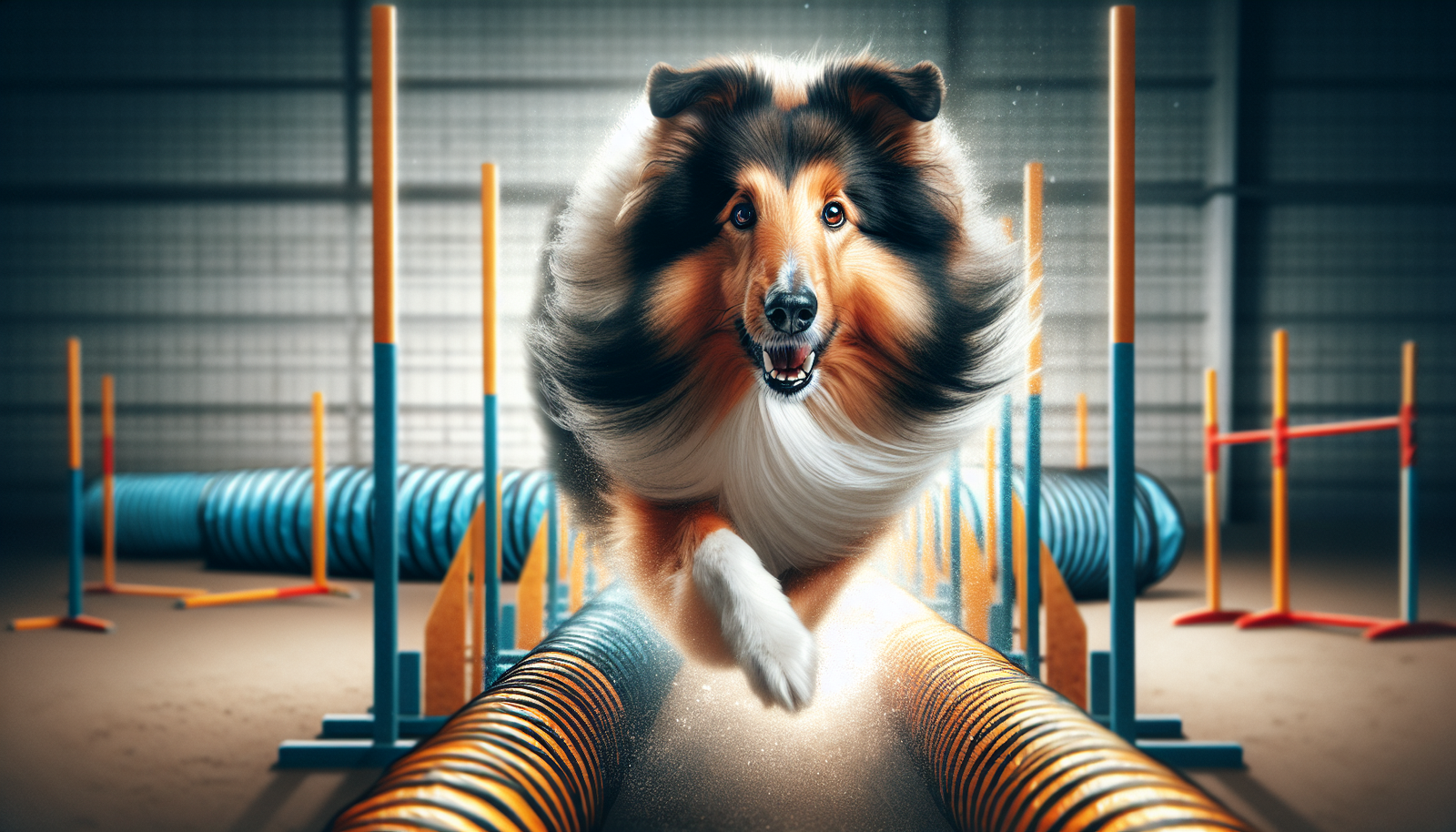
Emotional stability
Confidence
Confidence is crucial for success in advanced agility training. Your Rough Collie should display a sense of self-assurance and belief in their abilities, even when faced with new or challenging tasks. Dogs with high levels of confidence readily engage in training exercises, exhibit a positive attitude, and demonstrate resilience in the face of obstacles. If your Rough Collie consistently displays confidence during training sessions, it is a positive sign of their emotional stability and readiness for advanced agility training.
Resilience
Advanced agility training may introduce novel or unexpected challenges that require your Rough Collie to adapt and persevere. A resilient dog can bounce back from setbacks and maintain focus even in the face of difficulties. If your furry companion demonstrates resilience, quickly recovering from mistakes or obstacles, they are better equipped to handle the mental and emotional demands of advanced agility courses.
Handling stress
While agility training can be exciting and fun, it can also be stressful for some dogs. Your Rough Collie should possess the emotional stability to handle potentially stressful situations, such as competition environments or noisy surroundings. Dogs with good stress management abilities remain calm, focused, and responsive to cues despite external pressures. If your Rough Collie handles stress well during training sessions and exhibits positive behaviors, it indicates their emotional stability and preparedness for advanced agility training.
Social behavior
Interactions with other dogs
In advanced agility training, your Rough Collie will likely encounter other dogs and handlers in a group setting. It is important to evaluate your dog’s interactions with other canines to ensure they can remain calm, friendly, and non-aggressive in a social setting. If your Rough Collie displays positive and appropriate behavior when interacting with other dogs, it suggests their ability to focus in a group and their readiness for advanced agility training.
Response to distractions
Advanced agility courses can be filled with various distractions, such as loud noises, enticing scents, or unfamiliar surroundings. Your Rough Collie’s ability to maintain focus and ignore distractions is critical for a successful performance. If your furry companion consistently demonstrates the ability to stay focused amidst distractions during training sessions, it indicates their readiness for the challenges of advanced agility training.
Ability to focus in a group
Agility competitions often involve multiple dogs running the course simultaneously. Your Rough Collie should be able to maintain focus and perform their tasks without being excessively distracted by other dogs or their handlers. If your Rough Collie displays an ability to stay focused on the course and ignore distractions posed by other dogs in a group setting, it suggests their readiness for the group dynamics of advanced agility training.
In conclusion, determining your Rough Collie’s readiness for advanced agility training requires a comprehensive assessment of various factors. From physical readiness to mental preparedness, each aspect contributes to their ability to excel in this demanding sport. By evaluating your Rough Collie’s age, health, fitness level, focus, problem-solving skills, trainability, response to commands, controlled behavior, and reliability, you can gauge their physical and mental readiness for advanced agility training. Moreover, their foundation agility skills, ability to follow cues, drive, motivation, physical coordination, endurance, stamina, emotional stability, and social behavior play significant roles in predicting their potential success in advanced agility courses. By carefully considering these factors and observing your Rough Collie’s behaviors, you can make an informed decision on when they are ready to embark on their exciting journey in advanced agility training. Remember, working together as a team and celebrating progress along the way will only strengthen the bond you share with your Rough Collie as you both conquer new challenges in the world of agility.
